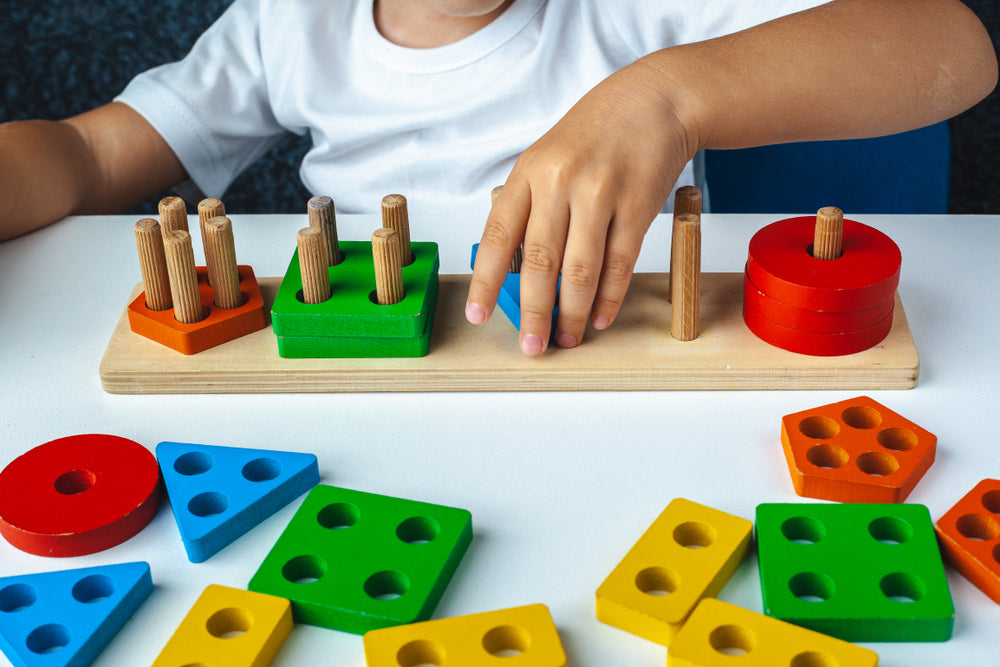In today's fast-paced world filled with technological distractions, children can easily spend more time in front of screens than engaging in imaginative play. However, the value of imaginative play in shaping childhood development cannot be overstated. From fostering creativity and problem-solving skills to improving social and emotional intelligence, imaginative play with educational toys plays a crucial role in a child's overall growth and development.
Imaginative Play and Creativity
Imaginative play, also known as pretend play or dramatic play, involves children using their imaginations to create scenarios, characters, and narratives. Imaginative play allows children to explore different roles, experiment with various scenarios, and engage in creative storytelling, whether playing dress-up, building forts, or staging elaborate tea parties.
Through imaginative play, children have the opportunity to flex their creative muscles, come up with new ideas, solve problems, and think outside the box. This type of play encourages divergent thinking, where children are able to generate multiple solutions to a single problem, fostering a mindset of innovation and ingenuity.
Imaginative Play and Social Skills
Imaginative play also plays a crucial role in helping children develop essential social skills. Children who play pretend with their peers learn how to take turns, negotiate roles, communicate effectively, and collaborate towards a common goal. In doing so, children develop empathy, perspective-taking, and the ability to navigate complex social dynamics.
Through imaginative play, children also learn valuable lessons about conflict resolution as they encounter and work through disagreements and misunderstandings that arise during play. By engaging in imaginative play, children practice skills that are essential for building strong relationships, forming friendships, and navigating social interactions both in childhood and beyond.
Imaginative Play and Cognitive Development
Imaginative play has been shown to positively impact children's cognitive development. When children engage in pretend play, they are using their imaginations to create and explore new worlds, which can enhance their cognitive flexibility, problem-solving skills, and ability to think abstractly.
Moreover, imaginative play allows children to practice their language skills by engaging in storytelling, dialogue, and role-playing. Children strengthen their vocabulary, grammar, and communication skills by using language to communicate with their playmates and express their ideas and emotions.
Imaginative Play and Emotional Intelligence
Imaginative play also plays a key role in helping children develop emotional intelligence. Through pretend play, children have the opportunity to explore and express a wide range of emotions, from joy and excitement to sadness and frustration. By acting out different scenarios and playing various roles, children learn to recognize and regulate their emotions and understand the feelings of others.
In addition, imaginative play allows children to process and make sense of their experiences, fears, and anxieties in a safe and supportive environment. By engaging in pretend play, children can work through difficult emotions, build resilience, and develop coping strategies that will serve them well throughout their lives.
Encouraging Imaginative Play in Children
As parents and caregivers, you can encourage and support imaginative play in children in many ways. Here are some tips to help foster imaginative play in your little ones:
- Provide open-ended toys: Choose toys that allow for open-ended play, such as blocks, dolls, dress-up costumes, and art supplies. These toys encourage children to use their imaginations and creativity to come up with endless possibilities.
- Create a play-friendly environment: Designate a space in your home where children can freely engage in imaginative play. Make sure the space is clutter-free, safe, and filled with toys and materials that inspire creativity.
- Play with your child: Take the time to play with your child and engage in imaginative play together. Follow your child's lead, join in their games, and encourage them to explore new ideas and scenarios.
- Limit screen time: Set limits on screen time and encourage children to engage in hands-on, imaginative play instead. Offer alternatives to screens, such as puzzles, board games, and outdoor activities.
- Encourage storytelling: Encourage children to tell stories, whether through writing, drawing, or role-playing. Provide opportunities for children to share their ideas, thoughts, and emotions through creative expression.
Discovery Toys: Quality Educational Toys for Children
At Discovery Toys, we understand the importance of imaginative play in shaping childhood development. For over 40 years, we have been dedicated to providing quality educational toys that inspire creativity, foster learning, and promote holistic development in children.
Our range of educational toys for newborns to school-aged children is designed to encourage imaginative play, stimulate cognitive development, and support social and emotional growth. From building blocks and puzzles to art supplies and pretend play sets, Discovery Toys offers a wide variety of toys that inspire creativity and exploration. Contact us today to get yours!
If you're looking for quality educational toys for your little ones, explore our range of products and discover the perfect toy for your child. With Discovery Toys, you can rest assured that you're choosing toys that will not only entertain and engage your child but also support their development and growth through the power of imaginative play.